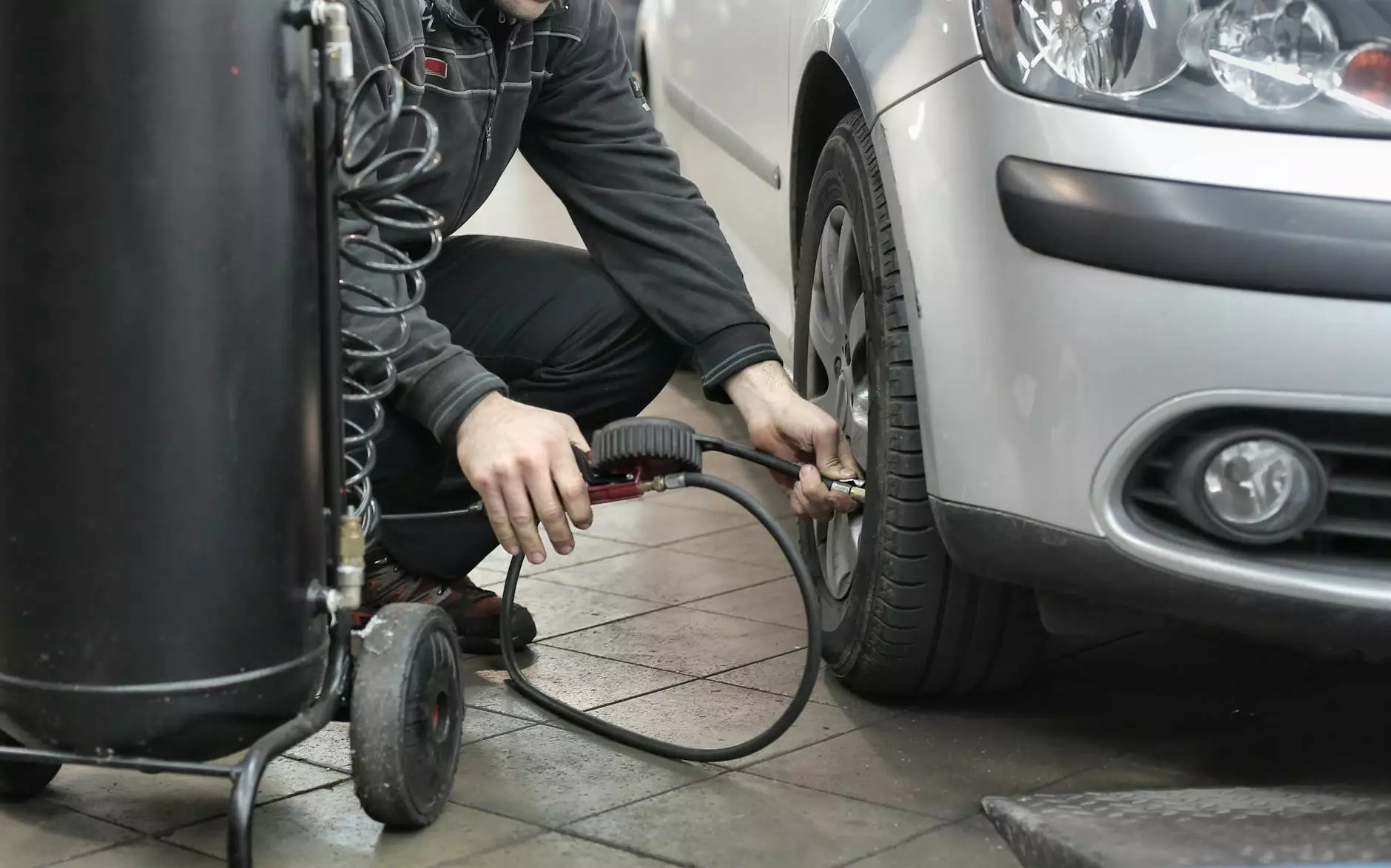Tire Safety: You're Only as Safe as Your Vehicle
Blog
As an experienced attorney in the field of automotive safety, John P. Bennett understands the critical role that tire safety plays in ensuring the overall safety of a vehicle. Your tires are the only point of contact between your vehicle and the road, making them an essential component in maintaining control, stability, and preventing accidents. In this article, we will explore the importance of tire safety, potential hazards, and provide useful tips to help you stay safe on the road.
The Significance of Proper Tire Maintenance
Proper tire maintenance goes beyond simply checking the air pressure or visually inspecting the tread pattern. It involves a comprehensive understanding of tire performance, regular inspections, and timely replacements. Neglecting tire maintenance can put you, your passengers, and other road users at risk. Whether you drive a passenger car, SUV, or commercial vehicle, maintaining your tires should be a top priority.
Tire Tread and Traction
Tire tread depth directly affects your vehicle's ability to grip the road and maintain traction, especially in adverse weather conditions. Worn-out or bald tires significantly increase the risk of hydroplaning, as water cannot be efficiently dispersed from the tire's surface. This reduces the tire's contact with the road, resulting in loss of control. Regularly inspect your tires for signs of wear and replace them before the tread depth reaches unsafe levels.
Proper Tire Inflation
Ensuring that your tires are properly inflated is crucial for maintaining vehicle stability, fuel efficiency, and extending tire life. Underinflated tires can lead to increased rolling resistance, causing excessive heat buildup, premature tread wear, and decreased fuel economy. On the other hand, overinflated tires can reduce traction, negatively impacting braking and handling performance. Always refer to the manufacturer's recommended tire pressure and check it regularly to maintain optimal inflation levels.
Tire Age and Replacement
Even if your tires have sufficient tread depth, they can still become a safety hazard due to aging. Over time, the rubber compound in tires deteriorates, leading to increased risk of blowouts and tread separation. Heat, sunlight, and weather conditions contribute to the aging process, making it important to monitor tire age. It is generally recommended to replace tires every 6 years, regardless of tread depth, to ensure maximum safety. Proper storage when not in use can also help prolong tire lifespan.
Common Tire Hazards and How to Address Them
Understanding and addressing common tire hazards can greatly reduce the chances of accidents caused by tire failures. Here are some hazards to be aware of and tips to mitigate their risks:
Potholes and Road Debris
Potholes and road debris can cause damage to your tires, leading to punctures, sidewall bulges, or rim damage. Avoiding running over potholes whenever possible and staying alert to road debris can help prevent tire damage. If you encounter a pothole, try to slow down and safely steer around it. Regularly inspect your tires for any signs of damage and promptly address any issues.
Overloading and Uneven Weight Distribution
Overloading your vehicle or uneven weight distribution can put excessive strain on your tires and lead to tire failure. Consult your vehicle's owner manual or manufacturer for maximum load capacity and proper weight distribution guidelines. Distribute the load evenly and avoid exceeding the recommended weight limits to prevent unnecessary stress on the tires.
Tire Rotation and Alignment
Regular tire rotation and alignment are important maintenance practices that can help extend tire life and ensure even wear. Tire rotation involves moving tires from one position to another to equalize tread wear. Proper alignment ensures that your vehicle's suspension and steering systems work correctly, preventing uneven tire wear. Consult your vehicle's manual for recommended tire rotation intervals and have the alignment checked annually or whenever you notice issues with steering or handling.
Legal Implications and Tire Safety
When it comes to tire safety, understanding the legal implications is also crucial. In the unfortunate event of an accident caused by tire failure, it is important to know your rights and seek legal advice. John P. Bennett, Attorney at Law specializes in automotive safety and provides expert legal advice in cases related to tire defects, inadequate maintenance, and accidents resulting from tire failure. Protect yourself and your loved ones by being aware of your legal options and consulting a professional in case of tire-related incidents.
Conclusion
Tire safety is not something to be taken lightly. Your tires play a vital role in keeping you safe on the road, and proper maintenance is key to ensuring their optimal performance. From regular inspections to tire replacements, it is important to prioritize tire safety for the overall safety of your vehicle. By understanding the potential hazards, taking preventive measures, and seeking legal assistance when necessary, you can stay one step ahead in protecting yourself and your loved ones. Trust John P. Bennett, Attorney at Law, to guide you through any legal matters related to tire safety and automotive accidents.









